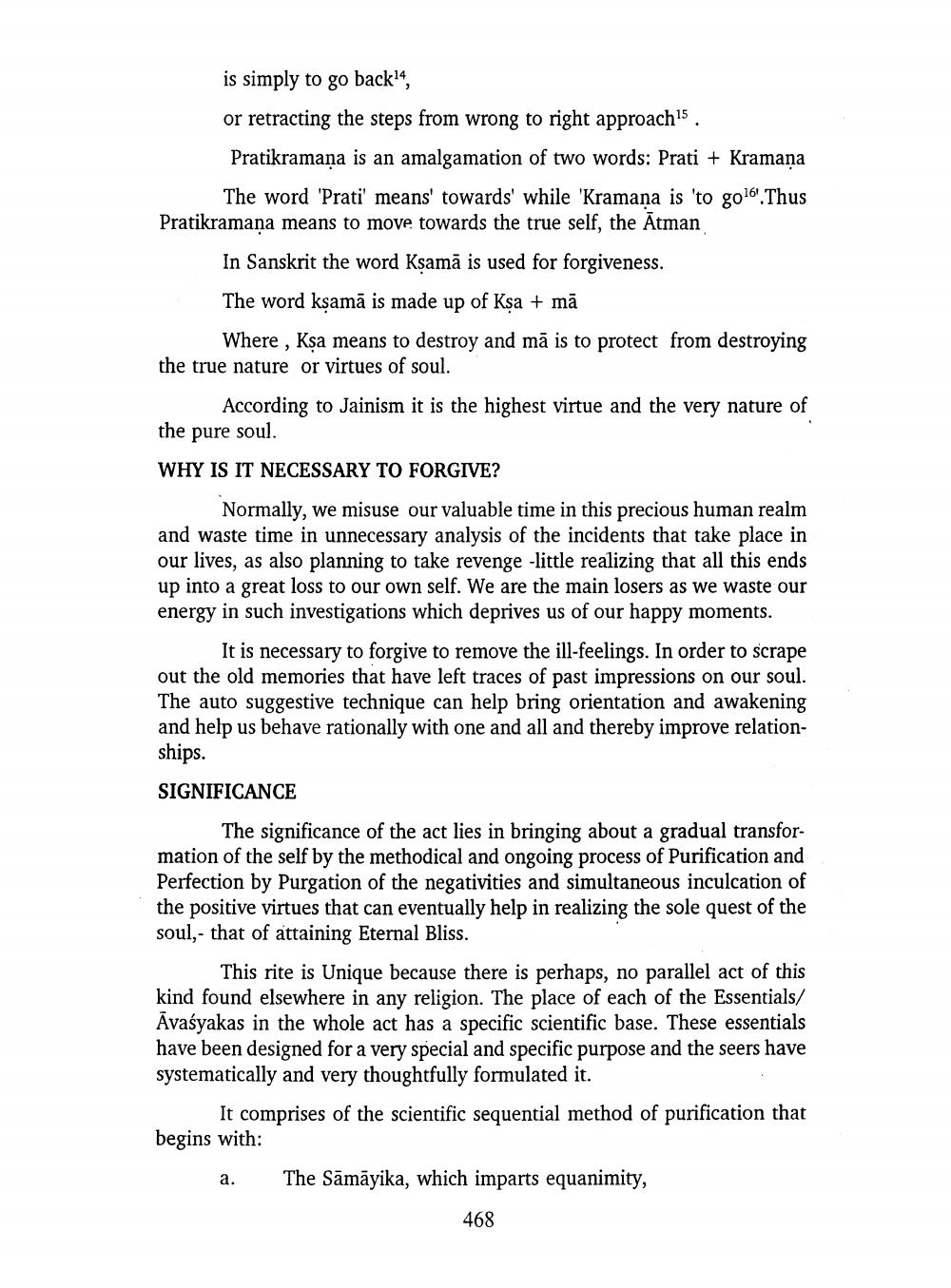________________
is simply to go back14,
or retracting the steps from wrong to right approach15.
Pratikramana is an amalgamation of two words: Prati + Kramana
The word 'Prati' means towards' while 'Kramana is 'to go 16. Thus Pratikramana means to move towards the true self, the Atman
In Sanskrit the word Ksamā is used for forgiveness. The word kşamā is made up of Kșa + mā
Where , Ksa means to destroy and mā is to protect from destroying the true nature or virtues of soul.
According to Jainism it is the highest virtue and the very nature of the pure soul. WHY IS IT NECESSARY TO FORGIVE?
Normally, we misuse our valuable time in this precious human realm and waste time in unnecessary analysis of the incidents that take place in our lives, as also planning to take revenge -little realizing that all this ends up into a great loss to our own self. We are the main losers as we waste our energy in such investigations which deprives us of our happy moments.
It is necessary to forgive to remove the ill-feelings. In order to scrape out the old memories that have left traces of past impressions on our soul. The auto suggestive technique can help bring orientation and awakening and help us behave rationally with one and all and thereby improve relationships. SIGNIFICANCE
The significance of the act lies in bringing about a gradual transformation of the self by the methodical and ongoing process of Purification and Perfection by Purgation of the negativities and simultaneous inculcation of the positive virtues that can eventually help in realizing the sole quest of the soul,- that of attaining Eternal Bliss.
This rite is Unique because there is perhaps, no parallel act of this kind found elsewhere in any religion. The place of each of the Essentials/ Avaśyakas in the whole act has a specific scientific base. These essentials have been designed for a very special and specific purpose and the seers have systematically and very thoughtfully formulated it.
It comprises of the scientific sequential method of purification that begins with:
a. The Sāmāyika, which imparts equanimity,
468




